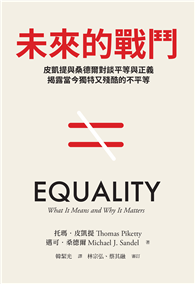This book takes a comprehensive approach to investigate how Sharia influences and manifests in the everyday lives of young Muslims, aiming to unravel the meaning and relevance of Sharia-driven laws and practices in English-speaking Western societies. By focusing on the grassroots level, it provides a deeper understanding of the lived experiences of Muslims and their relationship with Sharia. The presence of Muslims in Western countries has a long history, with recent waves of migration and conversions contributing to their increasing numbers. This study recognizes the diverse nature of the Muslim community, comprising both migrants and local converts, who have become integral parts of the pluralistic fabric of multicultural societies. The research draws on in-depth interviews with 122 young Muslim individuals from diverse backgrounds representing three different Western countries: Australia, the United States, and the United Kingdom. Diversity of participants allows for a broader exploration of the Muslim community and the inherent diversity of opinions, interpretations, and practices regarding Sharia. This approach moves beyond theoretical debates, providing concrete insights into the practical implications of Sharia for young Muslims in their respective Western contexts. The book also sheds light on the evolving landscape of information and knowledge acquisition in the age of digital technologies and cyberspace. It explores how young Muslims access and seek knowledge in the twenty-first century, recognizing the impact of changing sources and modes of information on their religious practices and beliefs. This aspect adds a valuable dimension to the study, capturing the dynamic nature of knowledge dissemination and acquisition among young Muslims in Western societies. The book will be fascinating reading for academics, researchers, and policy-makers working in the areas of Law, Political Science, Minority Studies, Religious Studies, and Islamic Studies.
| FindBook |
有 1 項符合
Sharia as Informal Law: Lived Experiences of Young Muslims in Western Societies的圖書 |
 |
Sharia as Informal Law: Lived Experiences of Young Muslims in Western Societies 作者:Yilmaz 出版社:Routledge 出版日期:2024-08-01 語言:英文 規格:精裝 / 192頁 / 普通級/ 初版 |
| 圖書館借閱 |
| 國家圖書館 | 全國圖書書目資訊網 | 國立公共資訊圖書館 | 電子書服務平台 | MetaCat 跨館整合查詢 |
| 臺北市立圖書館 | 新北市立圖書館 | 基隆市公共圖書館 | 桃園市立圖書館 | 新竹縣公共圖書館 |
| 苗栗縣立圖書館 | 臺中市立圖書館 | 彰化縣公共圖書館 | 南投縣文化局 | 雲林縣公共圖書館 |
| 嘉義縣圖書館 | 臺南市立圖書館 | 高雄市立圖書館 | 屏東縣公共圖書館 | 宜蘭縣公共圖書館 |
| 花蓮縣文化局 | 臺東縣文化處 |
|
|
圖書介紹 - 資料來源:博客來 評分:
圖書名稱:Sharia as Informal Law: Lived Experiences of Young Muslims in Western Societies
|










